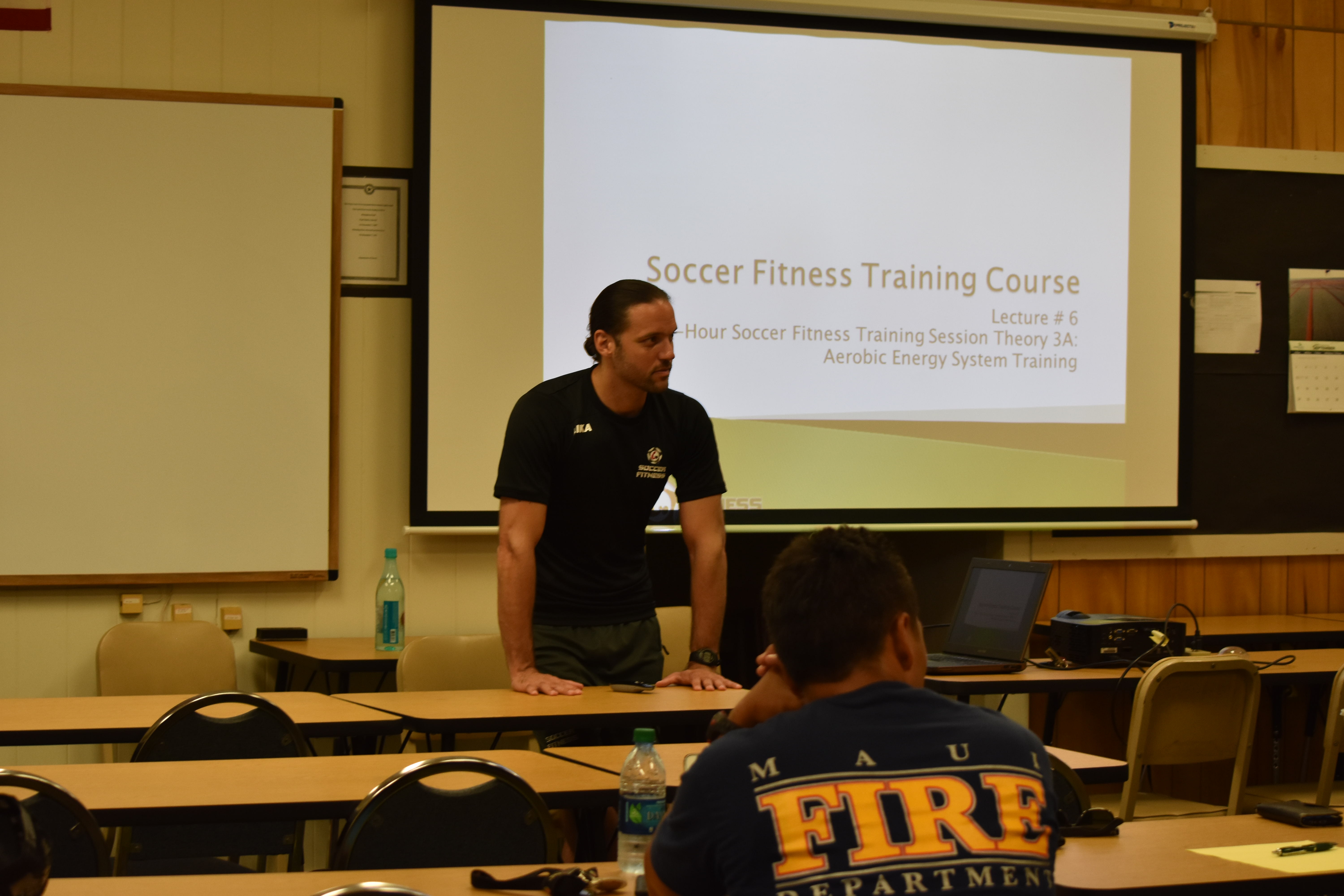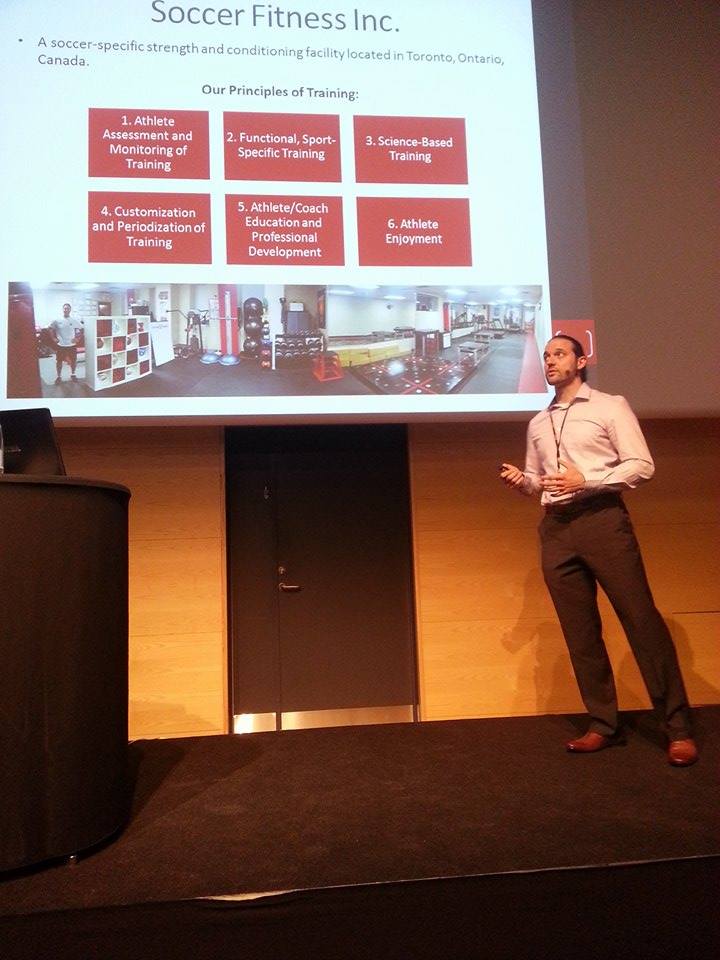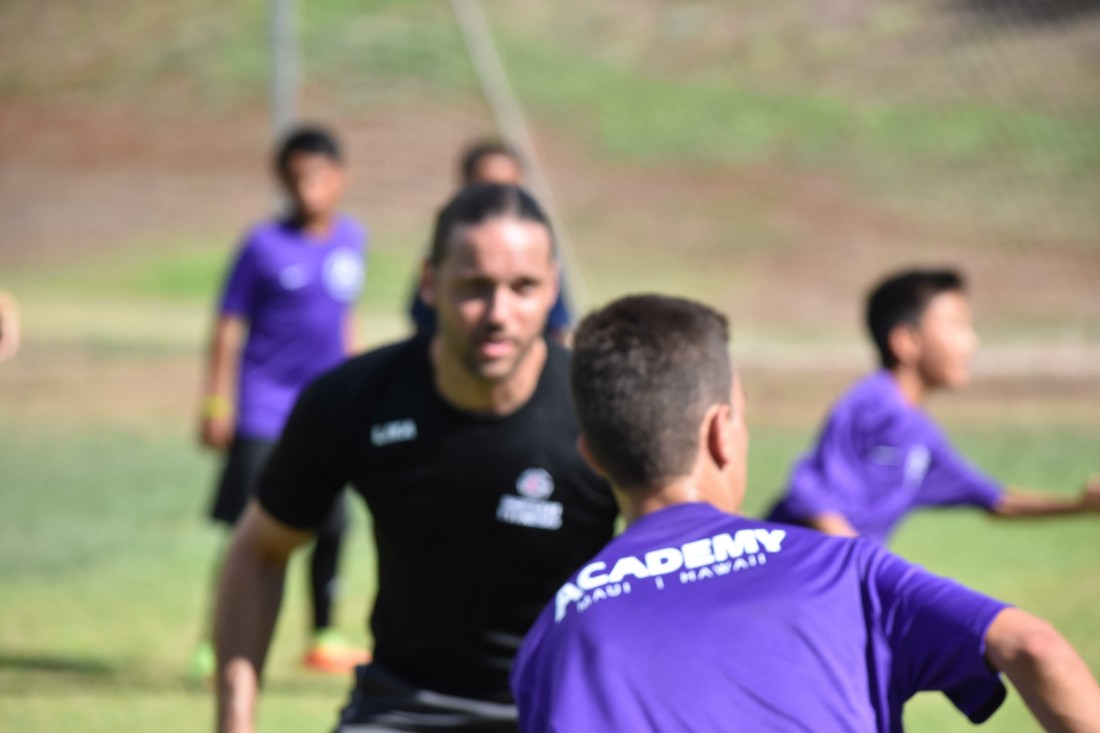I began learning how to coach around the same time I began learning about sport science, when I got a job coaching a YMCA boys’ soccer team almost 17 years ago, while I was also an undergraduate student in Toronto. Even at that time, the synergy between what I was learning about coaching – how to plan and implement practices for my team – and kinesiology – the scientific theory behind how to exercise and play sports like soccer – seemed very obvious to me.
After all, anyone who has played the game of soccer at any level will realize almost instantaneously following kick-off that the sport demands a high level of fitness, including speed, agility, strength, power and endurance.
Equally apparent to any soccer player is the reality that the high technical and tactical demands of the game become ever-more challenging when you are not fit enough to keep up.
Thus, if you agree with these objective facts and follow the logic, any form of soccer training or soccer practice must include a well-planned physical component, to ensure that players adapt to the high physical demands of the game and are able to execute the necessary technical and tactical skills while under fatigue in competition.
Fast-forward to 2017, and it seems as though this synergy – the objective reality that in soccer, the physical part of the game is directly connected to the game, something which was always so obvious to me even as a 20-year old beginner coach and undergraduate student – is not necessarily as obvious to many other Canadian and American soccer coaches.
In North America, even some of the highest-level coach licensing courses devote very little time to educating coaches about sports science, let alone requiring them to learn and understand how to plan and periodise the physical part of their training sessions throughout a season.
Unfortunately, the by-product of the lack of emphasis placed in coach licensing programs on teaching coaches about the physical side of the game is that most North American soccer coaches are not aware of, and/or able to plan and implement appropriate physical fitness testing and training programs with their teams.
Even more unfortunately, the players who play for these coaches will often go through their amateur youth careers either under-training – where they train too little or their training is not intense enough to achieve any sustained improvements in physical fitness – or over-training – where their training load, intensity and volume is too high and they either get hurt, or burn-out and lose interest in the sport altogether.

It was with all of this information in mind that I decided to develop the Soccer Fitness Trainer’s Course. This truly one-of-a-kind Course, which has now been accredited for continuing education credits by Ontario Soccer, the National Strength and Conditioning Association, the National Academy of Sports Medicine, and CanFitPro, is aimed at soccer coaches with an interest in fitness training, as well as fitness coaches with an interest in soccer.
More importantly, it also fills the aforementioned gap that presently exists in the North American coach licensing system, regarding the physical component of soccer and how to train for it.
Comprising 20 hours of both on-field and in-class instruction from industry leaders in sports science and performance training, our Course teaches the latest, evidence-based theory and methodology of soccer-specific fitness testing, training and monitoring, and provides dozens of exclusive practical examples of training sessions I have used personally in my time working at the highest levels of the game, including the Canadian Women’s National Teams, the Toronto FC Academy Teams, and Canadian SC, a professional soccer club in Uruguay.
Participants in the Course will come away with a clear picture of exactly how to plan and implement a year-round fitness program that is guaranteed to improve players’ performance and reduce their chances of getting injured.
We are now hosting live Courses run through Soccer Fitness at Trio Sportsplex (October 13th-15th, 2017), and through Ontario Soccer at the Ontario Soccer Centre (October 21st-22nd, 2017), as well as a new 100% Online Course, available now through our unique Course Craft online education platform. If you’re interested, we encourage you to visit our website, www.soccerfitness.ca, for more information and registration details.
Ultimately, if Canadian and American coaches are to maximise the development and performance of their players, they must start with the realisation that coaching IS fitness, and fitness is and must be an essential component of each and every training session.
As one recent coach who attended earlier this year explained: “Any coach who is dedicated to their own professional development and who cares about their athletes needs to take the Soccer Fitness Trainer’s Course.”

I`d love to hear your thoughts about this article. Drop me a line here to get the conversation started!


Richard great job, keep up the great work! You finding the pro teams incorporating fitness into training sessions via small sided games more so vs. Fitness training without the ball?
Thanks Joe! Yes, in general there is more “specific” training being done in the professional environments I have seen and/or worked in. The exceptions would be for players who are recovering from injury and/or require extra training above and beyond what they are doing with their teams (this work is typically non-specific – mostly running without the ball).